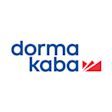The future of work is flexible: A third of the workforce in the US is now freelance. Many companies, including larger ones, are opening their doors to an alternative workforce composed of contractors, freelancers, gig workers, and crowd workers because of their ability to enhance organizational performance. Moreover, freelancers contribute around $1 trillion in income to the US economy.
As a result, there’s an unprecedented demand for coworking spaces. According to the 2019 Global Coworking Survey, an estimated 2.2 million people will work in more than 22,000 coworking spaces around the world.
Given that coworking spaces are high-traffic places with a constant flow of people going in and out and different members having varying levels of access, keeping the area safe is paramount. So, how can coworking spaces secure their premises? These three coworking access control solutions can help.
Get wired with RFID locks
RFID locks offer better security than conventional locks and keys and come in sleek and sophisticated designs to match the aesthetics of modern coworking spaces. They have door readers for key card access and software for access control management and auditing. These locks are ubiquitous access solutions, particularly in hospitality. However, for coworking spaces, they also come with some risks.
While some RFID locks are battery-powered, others require more hardware and wiring. Staff will also have the repetitive task of issuing new cards to visitors requiring temporary passes, as well as members with misplaced key cards. Additionally, members can easily give their key cards to non-members, and those who find lost key cards can gain unauthorized access to a coworking space.
Go wireless with electronic door locks
Electronic door locks are cost-effective and easy to install. They come with a keypad for setting and entering access codes with adjustable lengths, and can be programmed for one-time access. Hence, they prevent the costs and problems associated with issuing key cards.
As a completely wireless technology, electronic door locks eliminate the need to break down walls to install wiring. They’re also equipped with an anti-tamper lockout mechanism, which can be programmed for a certain number of invalid attempts and a time period between attempts.
However, electronic door locks have a limit on the number of access codes that can be issued. This makes them better suited for small coworking spaces or low-traffic areas. As with RFID locks, administrators and staff have no control over members giving their access codes to non-members, and malicious actors who tailgate members can gain unauthorized entry to a coworking space.
Go keyless with mobile access
Mobile access is a convenient and secure coworking access control solution. Locks are Bluetooth Low Energy-capable so they can communicate with a smartphone, which is used to unlock doors within a coworking space.
A smartphone adds another layer of security, minimizing the risk of unauthorized access using lost key cards or shared access codes. Members are more likely to remember their smartphones than a key card or access code, and they’re more vigilant about keeping their smartphones safe.
Mobile access might be more expensive and usually requires more hardware than other options, but the benefits far outweigh the drawbacks. Mobile access control suits all types and sizes of coworking spaces, and allows for greater flexibility. Staff can easily issue credentials to new members and revoke access for those whose contracts have ended, as well as provide guests with credentials to access the space only during a certain date or time.
Administrators can even customize access according to a person’s membership plan. For instance, those with full membership have access to conference rooms, while casual members only have access to hot desks.
Choose a coworking access control solution that works best for your space
Access control systems can set a coworking space apart from others out there, especially in terms of security. It’s possible to mix and match options, such as using an RFID lock for the front door and mobile access for meeting rooms or private offices. Different spaces have different needs, and every coworking space will benefit from custom access control solutions.



